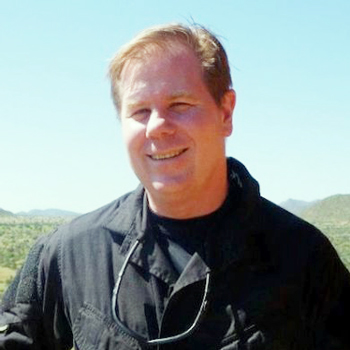After 25 years in the military, Dr. David Kilcullen needed a change. So he started Caerus Associates, which is "two-thirds tech, one-third social science, with a dash of special operations." Now he's helping solve land disputes in Monrovia, and creating crime maps in Lagos.

There's no shortage of stories about how civilians used technology to help tip the scales against Muammar Gaddafi’s army during the Libyan uprising. But few are as powerful as the one told by former U.S. military advisor Dr. David Kilcullen at last week’s Google Ideas Summit in Westlake Village, Calif. Kilcullen explained how a group of Libyan schoolgirls used Google Maps to pin the locations of snipers in their neighborhood in order to help their classmates navigate safe routes home from school. A similar story was reported to John Pollock, as told in his excellent piece on the civilian-driven information war in Libya, “People Power 2.0.” Kilcullen added that ships off the coast of Libya even used the pins as guideposts when launching strikes against Gaddafi’s soldiers.
That wisdom of the community is what drives Kilcullen’s latest venture, Caerus Associates, a consultancy firm implementing crowdsourced design solutions in war zones and post-conflict reconstruction zones around the world. Their clients include governments, NGOs, aid agencies, and the World Bank, and their projects range from solving land disputes in Monrovia, Liberia, to creating crime maps in Lagos, Nigeria, to using predictive models to map population growth in areas where urban centers don’t even exist yet.
 “We’re two-thirds tech, one-thirds social science, with a dash of special operations.” Kilcullen says. "We can go out in a community and say, 'Let’s map who owns what land,' or 'Let’s map who owes the local warlord money,' or 'Let’s map the areas in the city where you don’t feel safe.'"
“We’re two-thirds tech, one-thirds social science, with a dash of special operations.” Kilcullen says. "We can go out in a community and say, 'Let’s map who owns what land,' or 'Let’s map who owes the local warlord money,' or 'Let’s map the areas in the city where you don’t feel safe.'"
From crime to land disputes, Kilcullen and Caerus have plenty of problems to work on today. But the company is also focuse...
[Source: Fast Company]
No comments:
Post a Comment